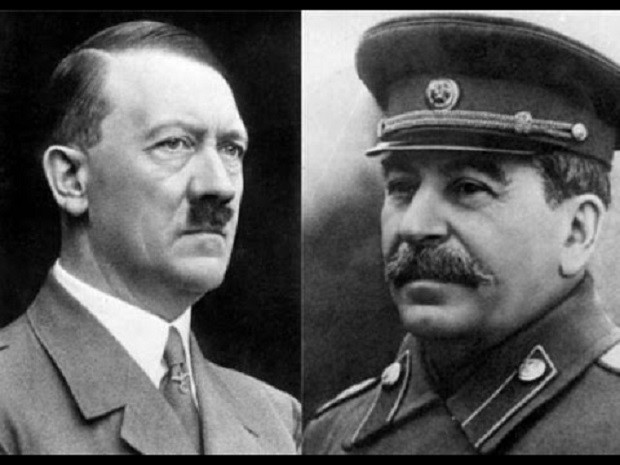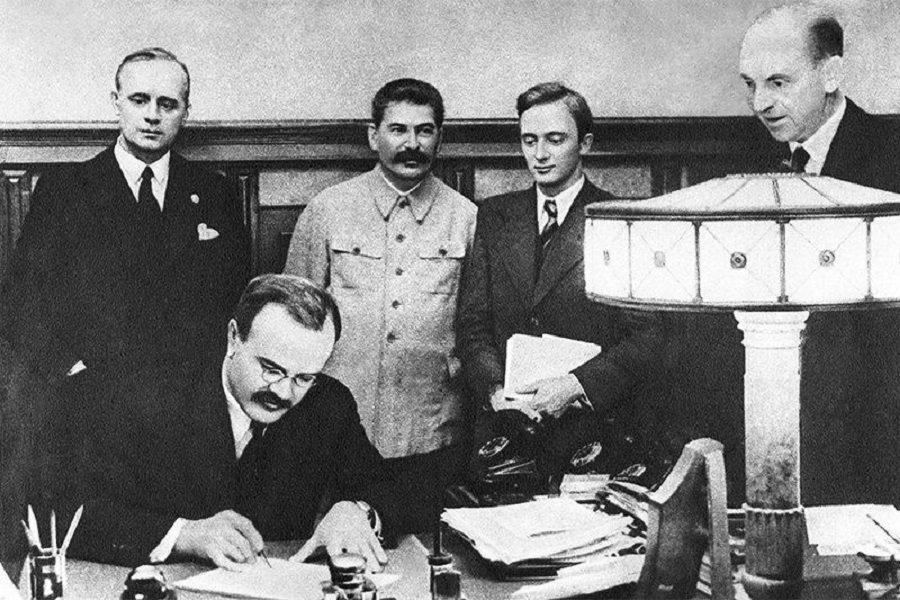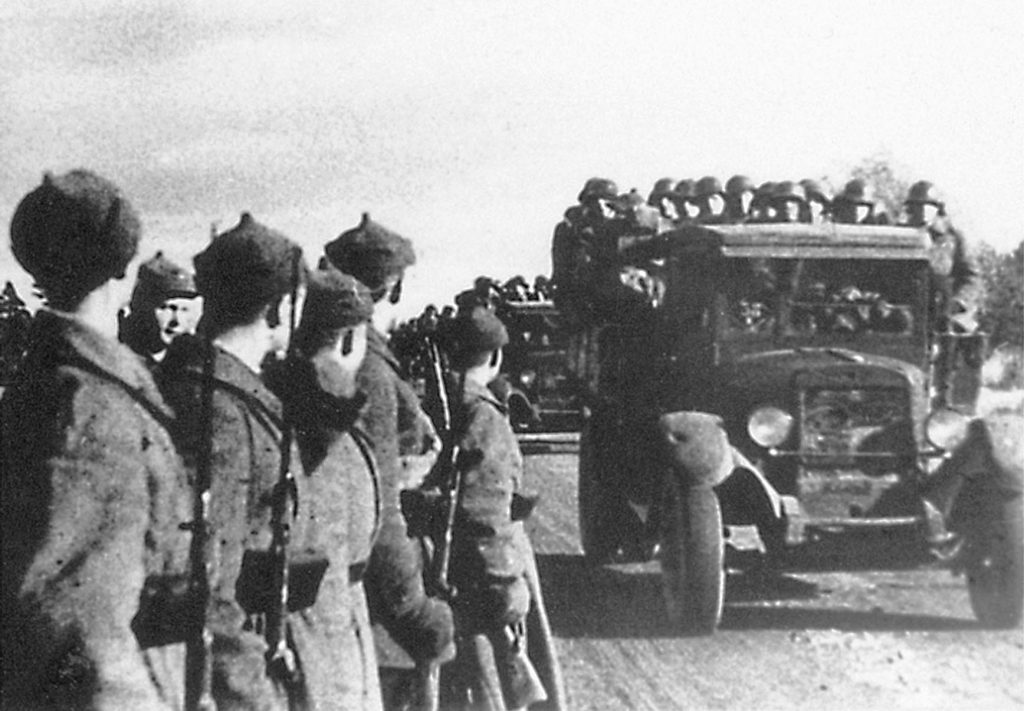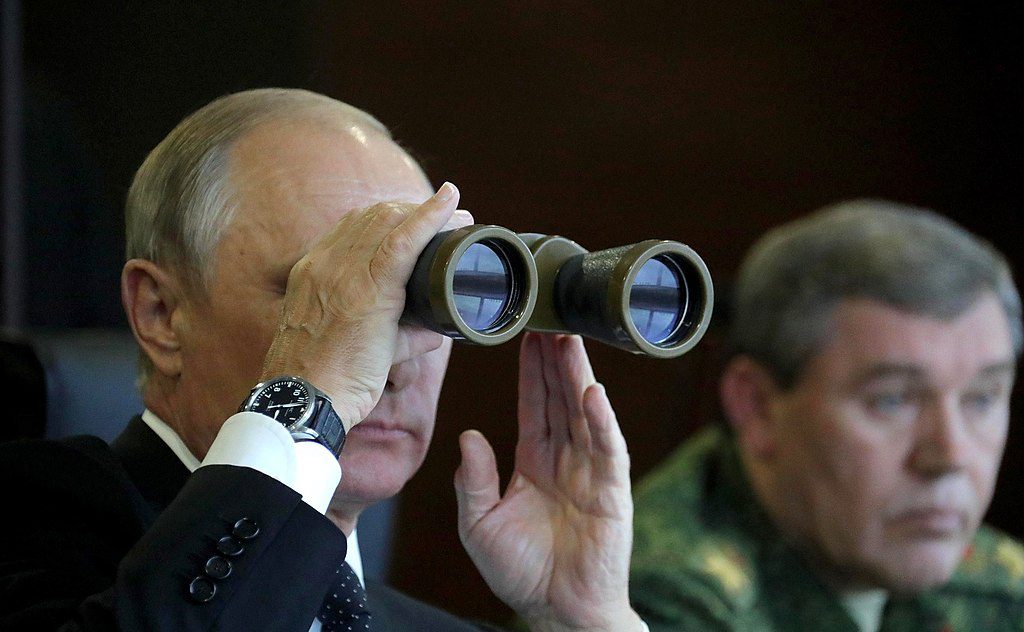The 1939 Molotov-Ribbentrop Pact entails five lessons for the world today, Paul Goble, the American analyst, writer and columnist with expertise on Russia, writes.*
Some anniversaries are marked because they are so important historically that one cannot understand the present without returning to them. Others are commemorated because they contain lessons that remain important for today.
Marking the anniversary of the Molotov-Ribbentrop Pact of 23 August 1939 is about both. The world would not be in the shape in which it is were it not for that horrific deal by two dictators: without that now long-ago accord, there would not have been the war in Europe at least in the shape that it took, the Baltic countries would not have been occupied for so long, and the Soviet Union wouldn’t have lasted and then fallen apart as it did.
Those consequences are so obvious that it seems to me that I can make a bigger contribution to our discussions here by focusing instead on the lessons of the Molotov-Ribbentrop Pact for the world today.
I want to offer five, not because there are not others but rather in the hopes that no one will ignore these lessons and thus act in ways that will have some equally or even more negative consequences to that agreement between Hitler and Stalin, a possibility many dismiss because they believe that since we no longer live in “the age of dictators” and therefore cannot possibly act in ways resemble what they did.

Breakthroughs via secret diplomacy
The first lesson is that open covenants must be openly arrived it. The pernicious quality of the Molotov-Ribbentrop Pact was its secret protocols that divided Europe between Hitler and Stalin. In fact, Germany and the Soviet Union already had a friendship accord and the formal part of Molotov-Ribbentrop did nothing to add to its provisions. It was the secret protocols that are the centre of what the two dictators did, and they agreed to those precisely because they were secret, the basis for action but not for discussion.
It is often observed that democracies do not go to war against each other. That isn’t strictly true. But it is the case that democracies require a public process that generally but not always precludes the kind of secret deals dictators can and as in 1939 do make.
Had there not been any secret protocols to the Molotov-Ribbentrop Pact, one of two things would have happened: either there would have been extreme difficulties in both Germany and the Soviet Union in accepting the pact or there would have been a wave of Western revulsion that would have led to action before Hitler and Stalin could begin the war by carving up Poland.

Unfortunately, today, there are both dictators and democrats who think that the only way to achieve breakthroughs is via secret diplomacy; and consequently, there is a great danger of new secret agreements that will have negative consequences. Those who remember Molotov-Ribbentrop should be on the front lines in opposing that kind of negotiation, that kind of agreement, and that kind of risk.
Big powers make decisions about others without the participation of the latter
The second lesson of the Molotov-Ribbentrop Pact is one that has long been enshrined in Baltic thinking: nothing about us without us. Estonians, Latvians and Lithuanians insisted in their drive to the recovery of their independence that no deals should be made about them without their participation.
Molotov-Ribbentrop would have been impossible if the countries most affected by it had been present during the talks. But they weren’t: they were cast as pawns and victims rather than participants. And the consequences were disastrous.

Unfortunately, again, there are many in the world today who think the proper way to get agreement about difficult cases is for the big powers to meet and make decisions about others without the participation of the latter – be it about Ukraine, Syria or anywhere else.
It is, of course, the case that the great powers have a responsibility to take decisions but they have an equal responsibility to ensure that they do not try to do so over the heads of those about whom they are making such decisions. That is something Vladimir Putin wants everyone to forget, and tragically, there are all too many ambitious or fearful leaders in the West who are willing to go along.
The imperial temptation is not over
The third lesson of the pact is that no border changes are permissible without the agreement of all parties concerned. Hitler and Stalin assumed they could change borders with impunity. History at great cost showed them to be wrong: Hitler lost his war, and Stalin’s heirs lost much of their empire and will in time lose the rest as well. The age of empires is over. But unfortunately, the age of imperialism and the imperial temptation is not.

In the last decade and a half, we have seen Moscow change the borders in Georgia and change the borders in Ukraine unilaterally and by military force alone. Many people are now saying that the West simply has to accept this because Moscow will never back down.
But again, the Molotov-Ribbentrop Pact contains a lesson: it sparked American non-recognition policy, a policy that remained in place for 50 years, giving hope to the citizens of the three occupied Baltic countries and ultimately helping them recover their independence de facto and establish a post-occupation future de jure.
Today, citizenship is the paramount value over ethnicity
The US non-recognition policy, which had its roots in the Stimson Doctrine of 1930, remains the right way to go even if it isn’t going to lead to quick results. As Loy Henderson pointed out in his classic memorandum, the US can’t recognise aggression by anyone regardless of their status with regard to Washington on any other issues.
The fourth lesson of the pact is that in the world today, citizenship, not ethnicity, is the paramount value. Underlying the policies of both Hitler and Stalin was a view that nationality – German or Russian – was more important than the citizenship of others. That led to the 1939 accord and that led to war. In many ways, the founding principle of the United Nations was that citizenship always takes precedence over ethnicity: otherwise, the world will remain in conflict forever.

Tragically, many in the world today have forgotten that. Putin has elevated Russian ethnicity over the citizenship of people in Ukraine, Georgia and elsewhere, and other countries focus on co-ethnics or co-religionists abroad as if they had special rights with regard to them. The settlement of 1945 held that this was wrong. And Molotov-Ribbentrop is again a useful reminder that citizenship and the countries on which it is based must be respected rather than ignored. If it isn’t, then the world will again enter a very dark time.
Might does not make right
And the fifth lesson of the 1939 pact is that might does not make right. For most of human history, those who had the power made the rules and ignored the rules when it suited them. But beginning in 1648 and in fits and starts since then, the world has moved toward one based on rules and laws.
The Molotov-Ribbentrop Pact was an effort to turn back the clock, to go back to a world where the strong imposed their will on the less strong. Ultimately, that sparked a revulsion which led to the destruction of the systems of the two leaders who signed that agreement.
But today, there are many who say that in an increasingly chaotic world, realism requires deferring to the strong rather than following the rules. They want to turn back the clock, to go back to a world in which their countries did what they wanted.
* This is a lightly edited version of the speech written by Paul Goble for the international conference, “Utopia unachieved despite millions victimised? Communist crimes and European memory”, held in Tallinn, Estonia, on 23 August 2018. This article was originally published on 23 August 2018.
The opinions in this article are those of the author.

